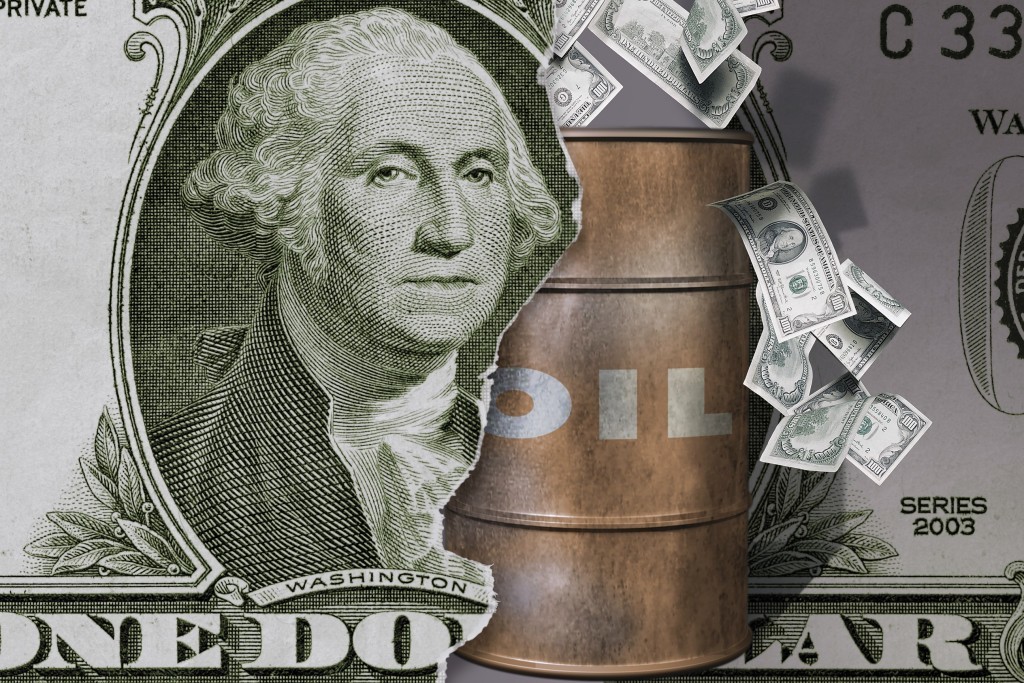
Crude oil in New York climbed from a three-month low in New York as the dollar slipped for the first time in five days.
A weaker dollar bolsters the appeal of commodities priced in the US currency. West Texas Intermediate oil fell below $50 a barrel on Monday for the first time since April on speculation global oversupply will persist. Iran will focus on regaining market share it lost due to sanctions, regardless of the impact on prices, Oil Minister Bijan Namdar Zanganeh said.
Crude’s recovery from a six-year low has faltered on signs the inventory glut will be prolonged as Iran seeks to restore output after its nuclear accord with world powers, joining OPEC members in defending market share. US stockpiles will remain almost 100 million barrels above the five-year seasonal average even as supplies are forecast to have dropped for a second week.
“The dollar is a little weaker, which may provide the oil market with some short-term strength,” Tim Evans, an energy analyst at Citi Futures Perspective in New York, said by phone. “There’s no fundamental case for a sustained rally though. The medium-to-long term picture for the market remains bearish.”
West Texas Intermediate for August delivery, which expires Tuesday, rose 64 cents, or 1.3 percent, to $50.79 a barrel at 9:54 a.m. on the New York Mercantile Exchange. It touched $49.85 on Monday, trading below $50 for the first time since April. The more-active September future climbed 67 cents to $51.11.
Brent for September settlement rose 45 cents, or 0.8 percent, to $57.10 a barrel on the London-based ICE Futures Europe exchange. The European benchmark crude traded at a $5.99 premium to September WTI.
Iran is seeking to produce almost 4 million barrels a day within seven months of sanctions being removed, expanding to 4.7 million as soon as feasible after that, Zanganeh said in Tehran on Monday. The fourth-largest producer in the Organization of Petroleum Exporting Countries pumped 2.85 million barrels a day in June, data compiled by Bloomberg showed.
Iran is in talks with other OPEC members about raising its crude exports, Amir-Hossein Zamaninia, deputy oil minister for international and commercial affairs, said in Tehran. Shipments shrank to 1.4 million barrels a day last year due to sanctions over its nuclear program, according to the US Energy Information Administration.